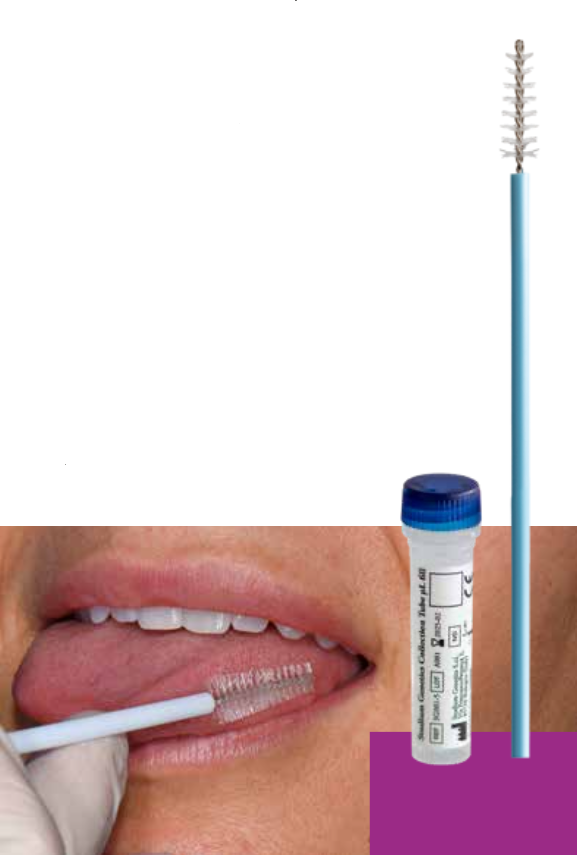Early Diagnosis of Oral Cancer
The importance of epigenetics in the care of our smile
Incidence and risk factors of oral cancer
Cancers in the mouth and throat are more common than you think. Every year, around 750,000 new cases are recorded worldwide, especially in developing countries. And sadly, half of these cases lead to death within five years of diagnosis.
The main risk factors include smoking, alcohol consumption and, for some cancers, HPV infection.
Why it is important to detect oral cancers early
The most common type of cancer in the mouth is called oral squamous cell carcinoma (OSCC). When it is discovered too late, it is difficult to treat
and the chances of survival are low. But if it is identified in the initial stages and surgically removed, 80% of patients survive without any particular problems 5 years after diagnosis.

Currently, diagnosis often occurs too late because screening methods are limited and precancerous lesions may go unnoticed.
A new technology: the test to detect mouth tumors early
After ten years of research and clinical trials, researchers from the University of Bologna – Alma Mater Studiorum have developed a new test called SG-OCRA™ that can help early detect tumors in the mouth or the lesions that precede them. This test is easy and non-invasive. Your dentist will collect a small sample with a simple brush from which DNA will be purified to perform the test to assess whether there are signs of cancer.
In tumors, in addition to genetic mutations, "epigenetic" modifications are observed which alter the normal expression of genes, such as DNA methylation. These events often occur in the earliest stages of the formation of the neoplasm.
The innovation is based on epigenetic analysis relating to changes in DNA methylation that regulate the switching on or off of 13 of our genes in these tumors.

Who should take this test
This test is useful for anyone who has suspicious lesions in the mouth. It is especially important for those who smoke and drink a lot. Rely on the expertise of your dentist: the early discovery of a dangerous lesion can save your life and avoids extremely invasive and radical treatments.
What can we discover
This test not only tells us if there is a tumor, but also if there is a greater risk of relapse after treatment. This is helpful in scheduling an accurate follow-up and helping prevent future problems.
How the test works
We collect a small sample of cells from the patient's mouth with a special brush and then analyze some genes to see if there are signs of cancer. This helps us identify individuals with malignant lesions early, give an accurate prognosis and plan treatment.
Why this test is different
It is absolutely non-invasive, so it is not painful but very sensitive and accurate, and provides useful information for early diagnosis, prognosis and follow-up.
To get tested, contact your dentist or healthcare professional.
Who we are
Studium Genetics is a spin-off company of the Alma Mater Studiorum – University of Bologna that develops tests to diagnose cancer early and predict its development.
Our Technology is based on epigenetics, a field that studies how genes are activated or deactivated without changes in the DNA sequence itself.
This allows us to detect signs of cancer early and improve patients' chances of survival.
Studium Genetics invites patients to contact their doctor or dentist for more information on the SG-OCRA™ test.


